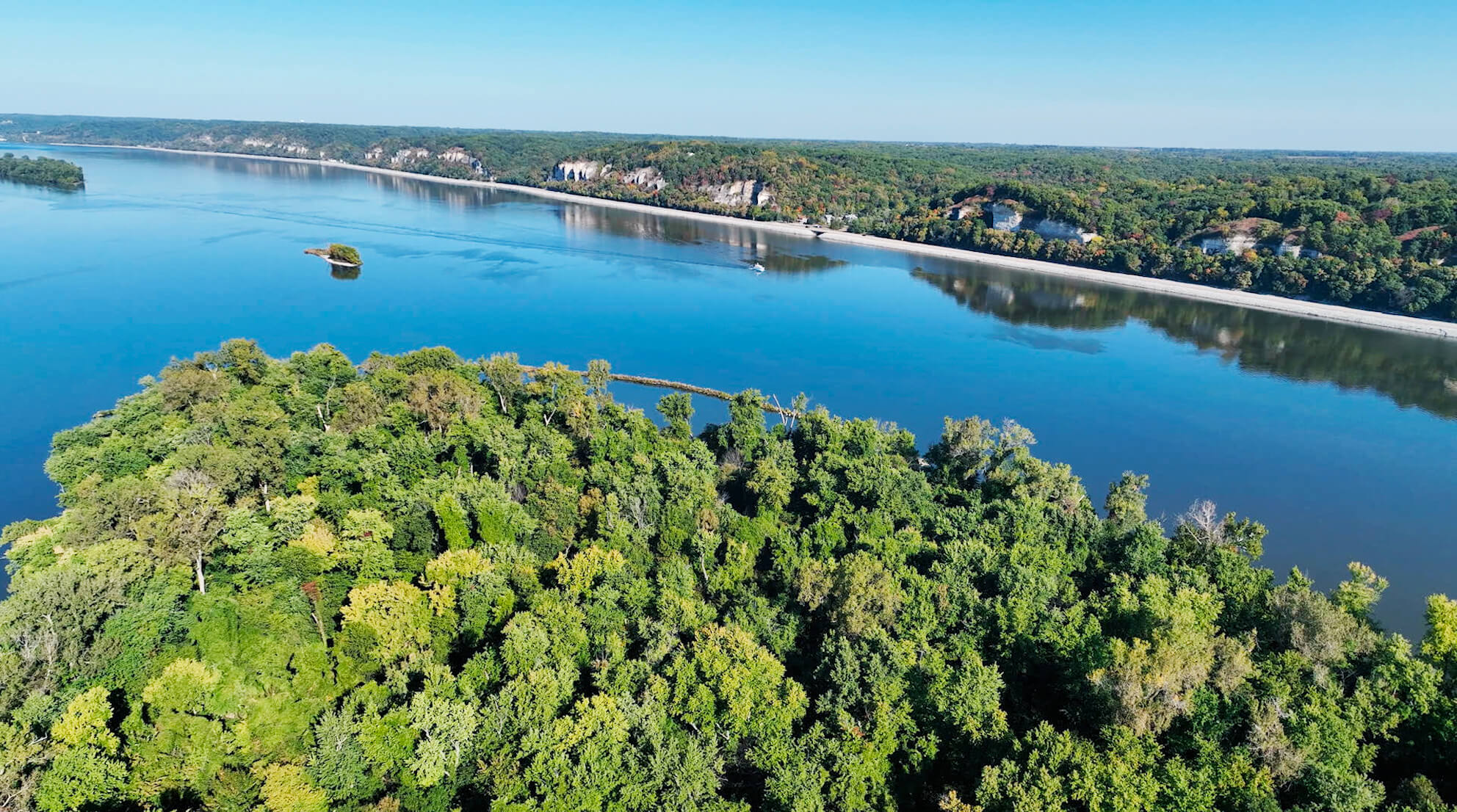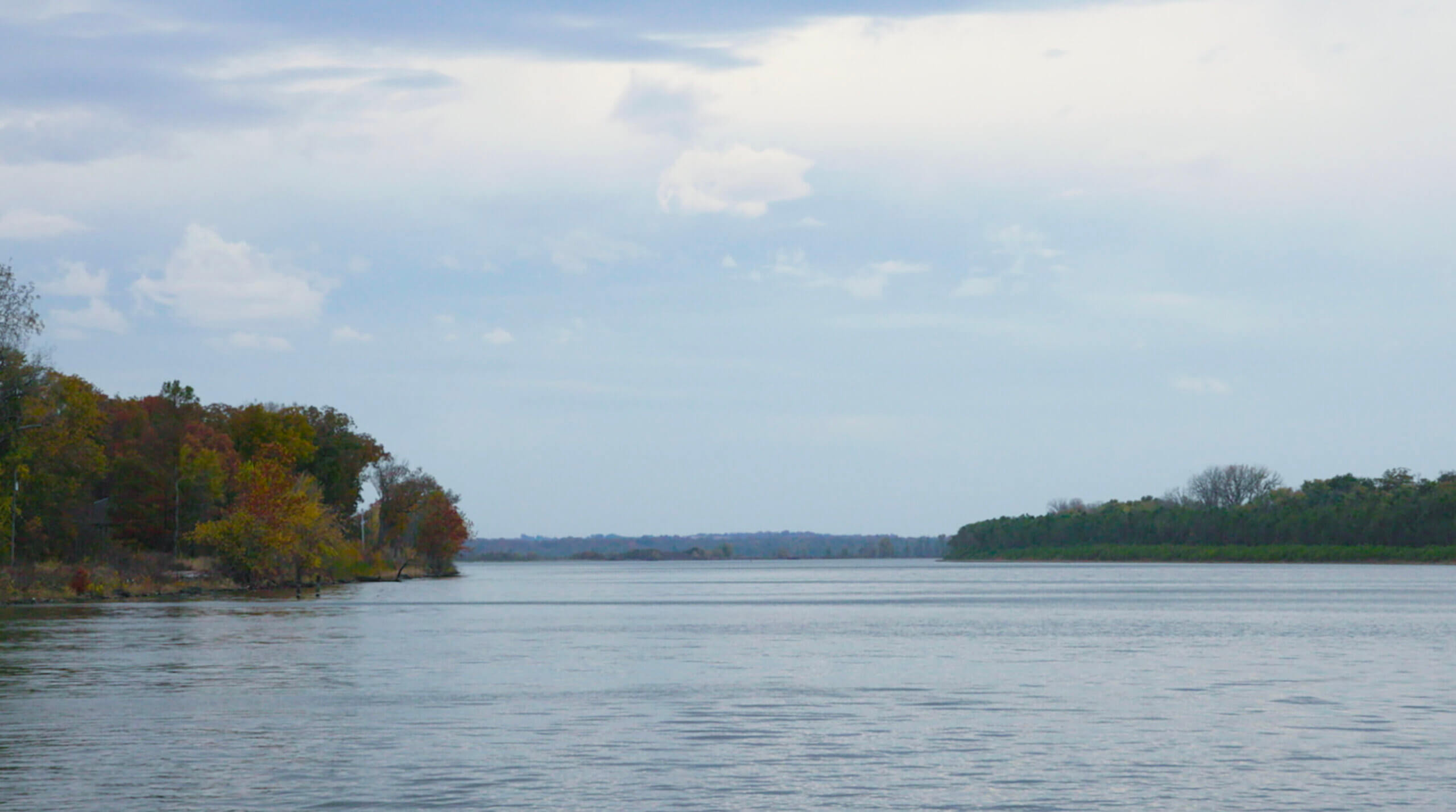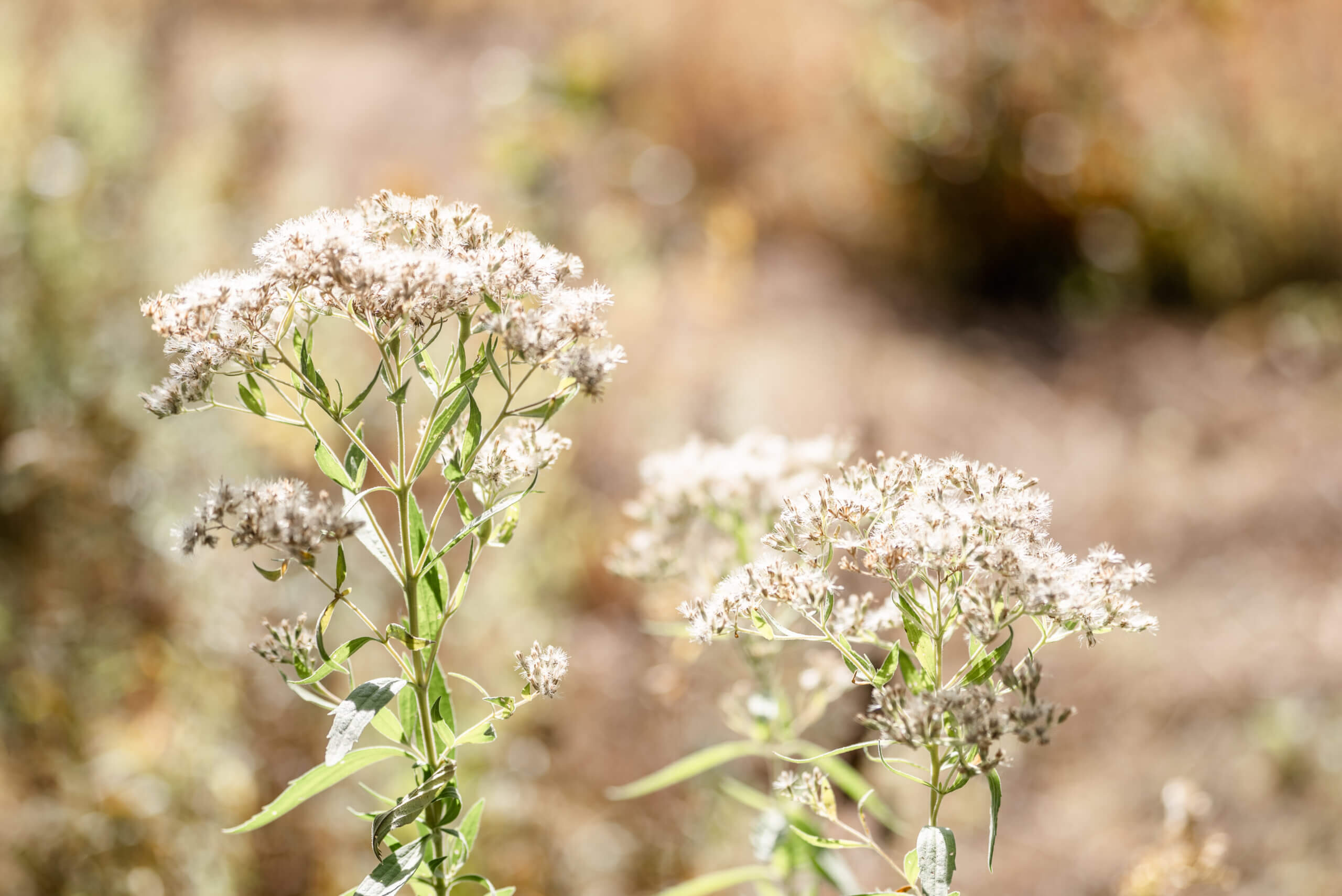A Path to Sustainable Impact
The Apex Conservation Grant Program provides a unique model for expanding the benefits of the renewable energy industry.
At every level of the organization, sustainability drives the Apex team.
This core value both reinforces the company’s mission—to accelerate the shift to clean energy—and extends that charge. Renewable electricity is critical to protecting species and their habitats on this continent and across the globe, but the scale of Apex’s work enables the pursuit of sustainability at the regional and local levels as well. Apexers have taken that responsibility to heart, striving to improve that aspect of their work at every turn—through partnerships with Fortune 500 companies, interactions with the communities that host Apex projects, and more.
This commitment has also led to a first-of-its-kind initiative for the entire clean energy industry: the Apex Conservation Grant (ACG) Program. The program offers the opportunity to extend the positive environmental impact of the energy transition by committing grant funds from Apex’s newly commissioned wind and solar facilities to support efforts that directly benefit the natural areas surrounding project communities. By preserving and enhancing tomorrow’s crucial ecosystems, the ACG Program is one of the most direct ways that Apex demonstrates the company’s sustainability core value.
“The model that Apex is using to build these partnerships and have the greatest impact on conservation possible is really unique in the industry. It’s a partnership that just keeps on growing.”
“We’re going into these local areas to make an impact through projects that are going to preserve, conserve, and restore natural habitats that have been modified by mankind,” said Ryan Henning, Apex’s vice president of environmental. “Through the grant program, we’re carrying forward this value in the hopes of having a lasting influence for decades to come.”
Setting an Industry Standard
In 2021, Apex announced a partnership with Ducks Unlimited, the first recipient of the then newly launched ACG Program, to improve more than 330 acres of habitat at the Two Rivers National Wildlife Refuge, 9,225 acres of riverine and floodplain habitats that lie at the confluence of the Illinois and Mississippi Rivers. The refuge is a pivotal migrating pathway for waterfowl, as well as home to a variety of bat species—including the grey bat, the Indiana bat, and the northern long-eared bat—all of which are federally endangered.
“We get high concentrations of many migratory species throughout both their fall and spring life cycles,” said Mike Sertle, regional biologist and manager of conservation programs for Ducks Unlimited. “In the face of changing patterns in both precipitation and warming, the science leads us to believe that these areas may become even more important for these species as time goes on.”
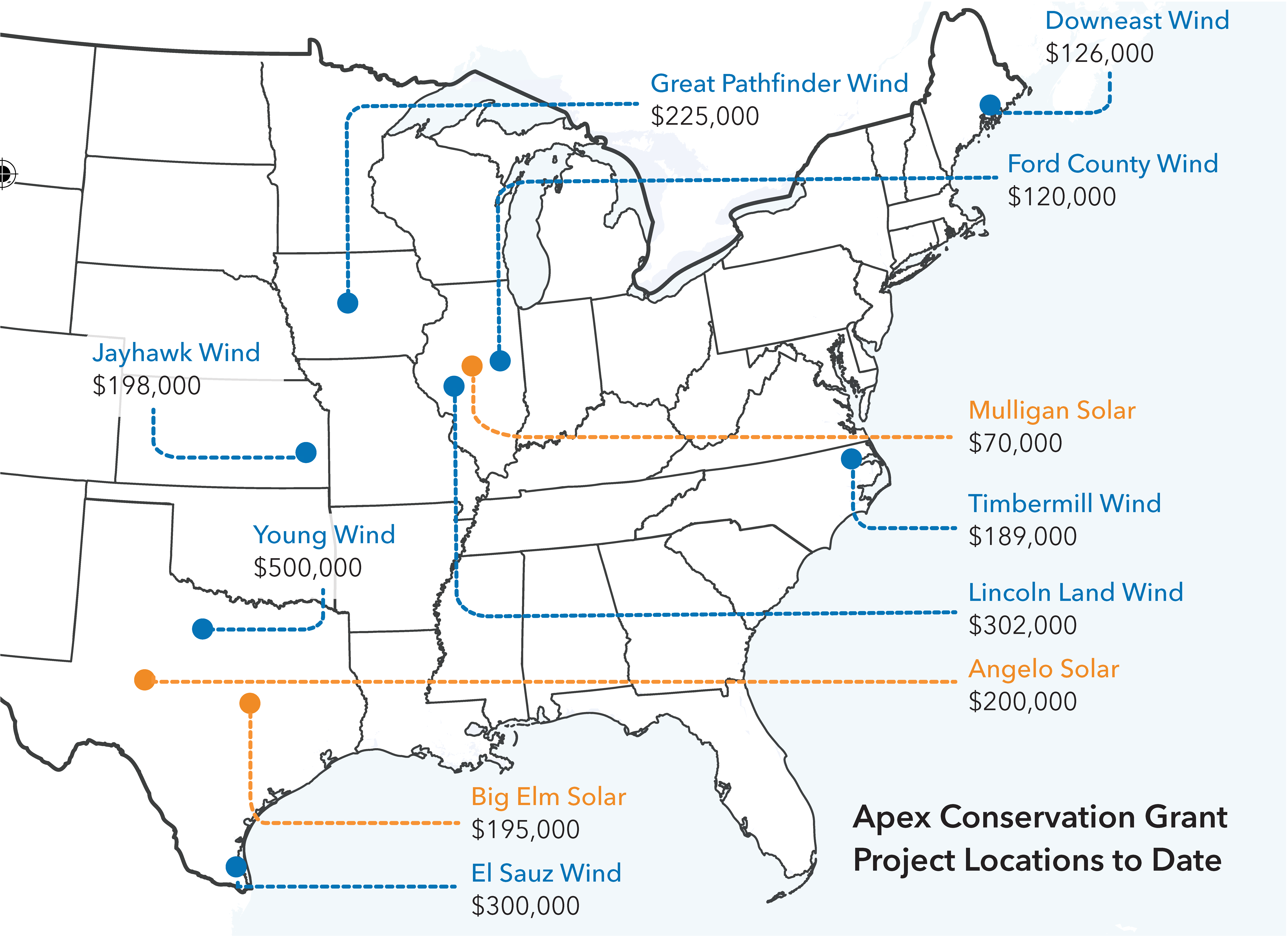
Thanks to funds provided by the ACG Program, Ducks Unlimited is working to restore flood-prone agricultural fields to forested wetlands—providing healthy habitat for wildlife, public recreation, and more—as well as completing timber stand improvement to promote natural regeneration that meets the life cycle needs for the wildlife species that call this area home. When the project is complete, hundreds of acres of former agricultural land will be restored to a healthy wetland forest environment, using wells and pumps to mimic the floodplain that once naturally existed.
Even more significantly, Ducks Unlimited has leveraged the $302,000 of Apex funding for an additional $3.6 million, including a North American Wetlands Conservation Act proposal to conserve nearly 6,000 acres, approximately 1,200 of which lie within Two Rivers National Wildlife Refuge. This partner match—and ultimate impact—was entirely unimagined when Apex’s very first conservation grant was awarded.
A Hands-On Partnership
There’s another—perhaps more micro, but no less meaningful—level of impact that the grant program enables: this past spring, members of the Apex team joined Ducks Unlimited at Portage Island on the Mississippi River to plant cottonwood trees, which in 100 years’ time will grow into reliable habitat for bats.
“It’s amazing to experience the kind of work that our partners are doing every day—I did not realize how far in advance conservation efforts have to take place,” said Sangeetha Rajasekeran, Apex transmission planning engineer and volunteer. “It’s critical to move toward renewable energy, but at Apex, we believe it’s important to do so as sustainably as possible. Every project we build has some kind of impact, so it is equally important to take part in conserving some of that land.”
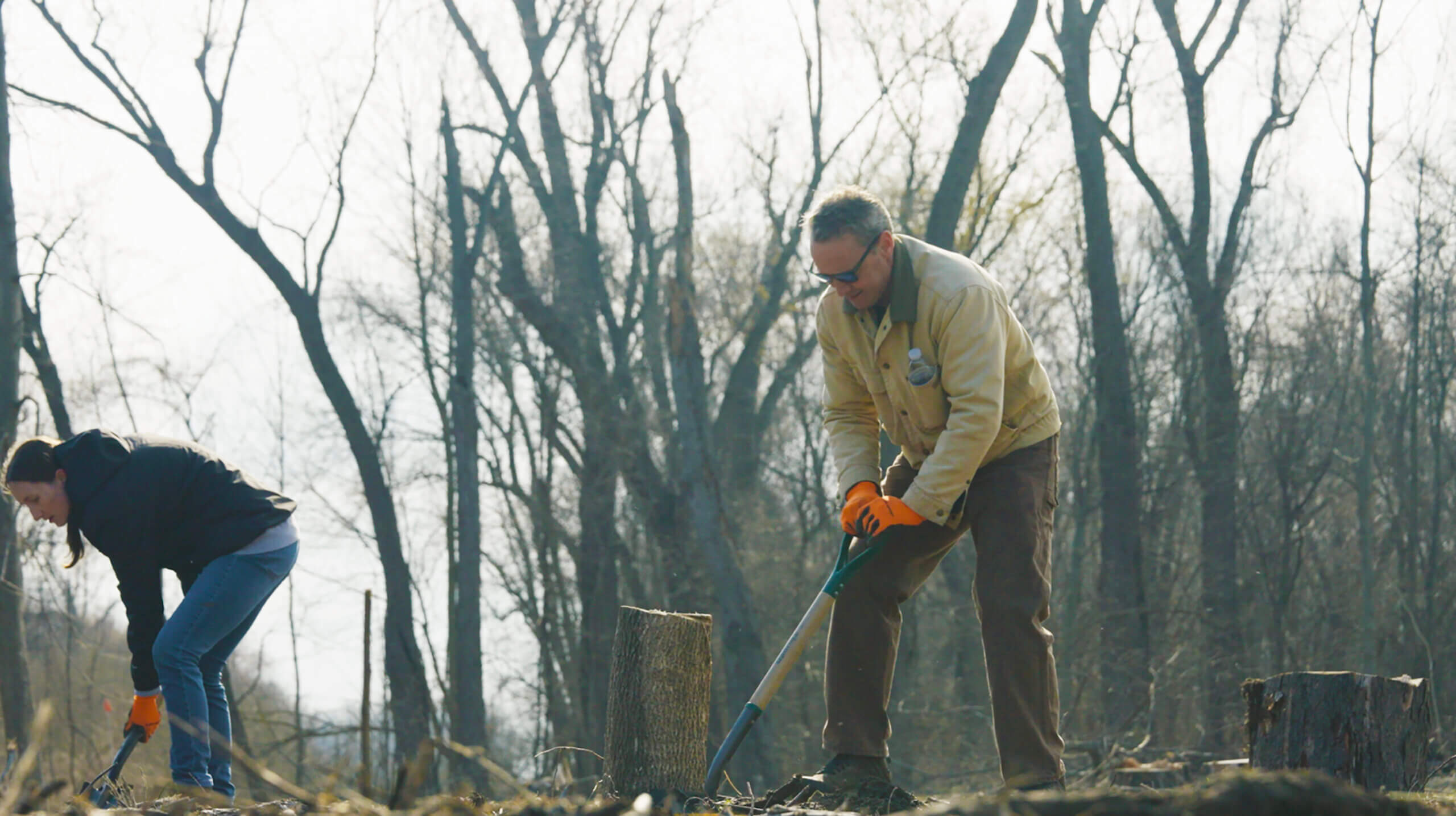
Beyond supporting bat habitat down the line, the eastern cottonwoods that were planted will provide a research opportunity around timber stand improvement work—enabling advancements as the conservation project eventually expands its scope farther south along the island.
“The model that Apex is using to build these partnerships and have the greatest impact on conservation possible is really unique in the industry,” said Karen Waldrop, chief conservation officer at Ducks Unlimited. “It’s not just the funding, but also the staff helping with designing projects and actually coming out in the field and planting trees with the [DU] team. It’s a partnership that just keeps on growing.”
Preserving and Enhancing Crucial Ecosystems
A commitment to sustainability has led to a first-of-its-kind initiative for the clean energy industry: the Apex Conservation Grant Program.
